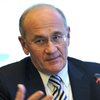Hello Visitor! Log In
Reclaiming the Global Future
ARTICLE | June 25, 2021 | BY David Chikvaidze
Author(s)
David Chikvaidze
We are today living not in a mere shifting environment but a pivotal moment. The essentials of eras change only every century or so, when the existing social and economic paradigm has exhausted itself and a new one emerges. The era we have entered upon began with the end of the Cold War. Yet, neither the end of an ideological standoff nor even the disappearance of a major empire necessarily makes a new era. Rather, some deeper event seems to be evolving in slow-motion, with the transition acquiring the outward features of an epochal change incrementally. It has clearly yet to run its course.
“The UN Office at Geneva is deepening its longstanding intellectual engagement with the World Academy of Art and Science, working jointly on projects to carve a path to a global vision that inspires a consequential consensus for progress in the 21st century.”
As we enter the third decade of the twenty-first century humanity faces several increasingly complex challenges: a climate crisis wreaking havoc around the world; armed conflicts threatening millions; dire poverty in large parts of the world; refugee flows at record levels; intractable and broadening inequality both among and within countries; sky-high debt; threats to the rule of law; the dismantling of disarmament commitments; attacks on the media and civil society; growth in nationalist and isolationist politics of fear and resentment; the game-changing role of Artificial Intelligence and its potentially sinister side; the burgeoning role of technology and social media in international affairs; and an abysmal state of relations among the world’s most powerful countries. And then there is the global pandemic—a defining crisis—with millions dead, the world upended, economies and countries undermined, millions pushed back into poverty, and the fate of the SDGs put at significant risk.
Global challenges of such magnitude require concerted, collective responses. Yet, the once vaunted ‘New World Order’ never materialized and the leadership we need from all quarters in order to develop a modern, inclusive multilateralism has not emerged. Indeed, as UN Secretary-General António Guterres observed, “Multilateralism is under fire precisely when we need it most!” World leaders speak of the need to ‘build-back better’ after
COVID-19. The WEF’s Prof. Klaus Schwab goes further, pointing to the need for a ‘Great Reset’, so humanity does not merely weather the storm, but utilizes its collective intelligence to leverage the leading trends to gain greater control of its fate. But we do not see the makings of such a collective enterprise and articulated vision for the world on today’s horizon.
While governments search within themselves for the one sine qua non condition of a new multilateralism—a change of mindset—the UN retains its role as the only truly global, neutral, legitimate table for all stakeholders. In that spirit, the UN maintains a valued interlocutor: civil society. Hence, the UN Office at Geneva is deepening its longstanding intellectual engagement with the World Academy of Art and Science, working jointly on projects to carve a path to a global vision that inspires a consequential consensus for progress in the 21st century. It is a tough job. But it is critical, and it is doable, if we will “be the change we wish to see.”


